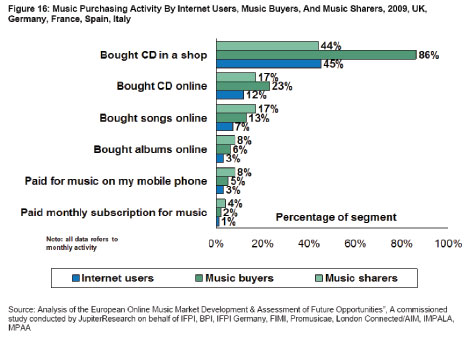

Some observers believe that music file sharing can fuel paid purchases because it exposes listeners to new music they might not have heard otherwise. To test this theory, Jupiter Research surveyed 5000 European consumers to see how illegal trading affects music spending and found that the overall impact of file sharing is negative.
The results show that a majority of illegal music sharers do not buy music, and were deemed “freeloaders” because they showed little willingness or ability to pay for music. Jupiter said this group would be a good target for ad-supported “free” music services and subsidized “feels like free” offerings.
Elsewhere, the survey showed that physical CDs still dominate over digital product and that converting physical-format buyers to digital buyers, rather than losing them as paying customers, is a key goal for the future of the industry. Physical-only buyers represent 44% of European consumers.
Other findings show that a third of those who pay for digital music also share files illegally, spending an average of €98 per year, or $165.

Category: Featured, Financial/Legal, Sales/Marketing
About the Author
Sarah Skates has worked in the music business for more than a decade and is a longtime contributor to MusicRow.View Author Profile


